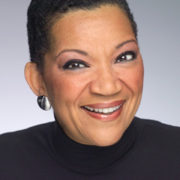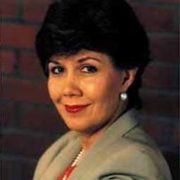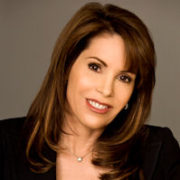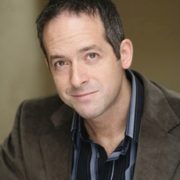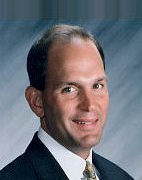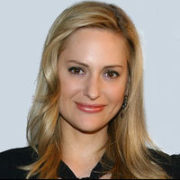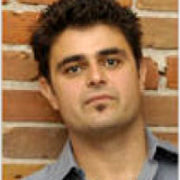Jennifer James
Jennifer James, an urban cultural anthropologist, is well known to audiences around the world for her innovative ideas. She works on an international level, helping people meet the challenges of today’s transitions. Her ability to synthesize the chaos of our current adaptation process is extraordinary. After twelve years as a full time faculty member of the Psychiatry and Behavioral Sciences Department at the University of Washington, she left the University in 1982 to follow her interest in international business and community service.
Jennifer now lectures to audiences around the world, describing the technological, economic, demographic and cultural transformations of this era. Dr. James’ ability to provide an understanding of the present and the future is essential to thoughtful decision-making in education, healthcare and organizational management. James is also the director of the Community Service Committee which helps individuals contribute to their community. She is the founder of the Committee for Children, a group devoted to the prevention of the physical and sexual abuse of children.
TOPICS
Cultural Intelligence: Telling The New Story
Technology concentrates energy – it makes the difference between a steam engine and a microchip. Progress is the concentration of energy. International communications technology has literally changed who we are by concentrating human energy as never before. This knowledge-based commerce and contact has changed economics (the efficient use of available energy), demographics (who we work with and meet with) and ultimately culture (the stories we tell ourselves about the way things should be). There is, in all human adaptation processes, both a demographic lag (who will we work with) and a cultural lag (what stories are we willing to change). Cultural intelligence is the ability to recognize cultural myths, our own and those of others, and replace them with current realities. Cultural intelligence is the ability to “unpack” the stories we have been told about who we are and what we do, examine them and replace them with new information. Leaders need to understand the balance between what technology can do and what human culture can accommodate.
The Human Face of Technological Change
We are all becoming “cyborgs,” part technician and part human consciousness. The knowledge worker, the portfolio professional, has different skills and a different character than any previous worker class. Our current leadership assignment is nothing less than the re-making of our traditional workers and our organizations into more civilized and productive cyber forms. We can teach the mind and body to adapt but it is a tough assignment. The key is the ability to think in new ways. We need to understand what our life and our business is now about and what our organization’s place in the global market is likely to be.
How To Change: How To Take Risks
We are changing faster than any other generation of Americans. The changes are both deep and broad. Technology drives the speed of this change, economics creates the breadth and cultural shifts provide the depth. Each of us will be asked to think in new ways, to work in new ways and to feel in new ways. Yet we resist, the body and mind automatically resist significant changes. This session will outline the sources and direction of technological, economic and cultural change. You will have a chance to evaluate your own flexibility and response time. You will learn the steps in the process of change and skills for building a 21st century mind and character.
Thinking In The Future Tense
Every major system in America is in the process of a major shift. Major industries, particularly telecommunications, were hit first and healthcare soon followed. The political, legal and academic systems are facing the same “rightsizing.” Leadership in this new era requires the ability to think in new ways. Management requires the skill of thinking about thinking, knowing how you think and operate. This seminar will provide experience in eight thinking skills:
Perspective (seeing with new eyes)
- Awareness of Patterns (recognizing the future)
- Critical Thinking (understanding the social context)
- Response Time (the ability to change and help others change)
- Context (understanding the past to know the future)
- Effectiveness (doing more with less)
- New Forms of Intelligence (using the rest of your brain)
- Diversity I.Q. (profiting from diversity)
Think of this seminar as a workout for your mind, a little brain aerobics, a blueprint for future success. Jennifer James will leave you energized and optimistic.
The Adaptive Executive
One of the most difficult aspects of adapting to rapid change, particularly when it is accompanied by complex technology and multiplying data sources, is the ability to give up an old construct about the way things ought to be and develop a new one based on the current realities. Accepting a new version of reality, essentially telling a new story, requires cultural intelligence. Cultural intelligence is the ability to observe, learn and understand our own culture as well as the culture of others. It is an essential skill in a diverse community and a global market. There are four stages to adaptation: technology, economics, demographics and culture. We adapt easily to new technology, we accommodate new economic structures, we welcome new workers, but we resist changing cultural beliefs. Culture is basically the beliefs we have about the “way things ought to be.” Culture always lags behind technological, economic and demographic shifts. As we increasingly become “cyborgs,” part technician and part human consciousness, successful adaptation requires changes in management and leadership. The new knowledge workers, the portfolio professionals, prefer to work as part of a diverse, empowered team with maximum independence and minimum management. They have different skills and a different character than any previous worker class. Our current leadership assignment requires a re-making of our staff, our organizations and ourselves into more civilized, responsible and productive cyber forms. The key is the ability to think in new ways. The adaptive executive is future oriented, he or she understands both the current business environment as well as what their organization’s place in the local and global market is likely to be.
Understanding and Managing Cultural Diversity
We are facing intense cultural shifts and a rapidly changing workforce and client base. In a customer-driven, global marketplace, a competent, innovative and diverse workforce is the determining factor in a company’s future success. The best place to look for advice on managing diversity is inside of yourself within your community’s history. This presentation provides an anthropological perspective on change and the framework for evaluating, motivating and educating yourself so you can benefit from the creativity and intelligence of our multi-cultural society.
Full Biography
Jennifer James is a cultural anthropologist, lecturer, writer and commentator, who is known to audiences around the world for her innovative ideas. She works on an international level with corporations and associations helping people to meet the challenges of today’s transitions. Her speeches and seminars deal with the human face of technological change and the development of cultural intelligence. Dr. James is a specialist in areas of cultural change, diversity and marketing intelligence.
Jennifer regularly receives standing ovations and is described by clients, ranging from Georgia-Pacific, Lockheed Martin, Pfizer Pharmaceuticals and the national Association of School Boards, as “inspiring, incredible, thought-provoking, innovative, humorous, energizing, empowering, just brilliant” and “the best speaker I have ever heard.”
She is a published author of seven books, which include Windows, Success Is The Quality Of Your Journey, and Thinking in the Future Tense. She has written more than 50 academic articles and wrote a newspaper column for the Seattle Times for 18 years. She is currently writing a book, Cultural Intelligence for Harvard Business Press.
Dr. James earned her Master’s Degree in history and psychology and her Doctorate in cultural anthropology. Before entering the public arena, she was a professor of Psychiatry and Behavioral Sciences at the University of Washington Medical School for twelve years.
She has been an N.I.M.H. Fellow, served on research review committees and on the editorial board of academic journals. Jennifer has received many honors including excellence in journalism awards, an International Film Festival gold medal, a Cindy Award for special achievement and was Billboard Radio Personality of the Year.
She is the founder of the Committee for Children a nonprofit organization that develops curriculum’s for the protection of children and the development of alternatives to violence. These curriculum’s, “Talking About Touching, Second Step” and “Steps To Respect” are now in taught in every state and in 37 other countries.
Expertise: Authors | BUSINESS | Change | Communication | Communication Skills – personal | Diversity | Family Relationships | Juvenile Issues | Leadership | Personal Development | Relationships | Society & Culture | Spouse Programs | TECHNOLOGY | Women’s Issues | Work / Life Balance | Workforce Issues




